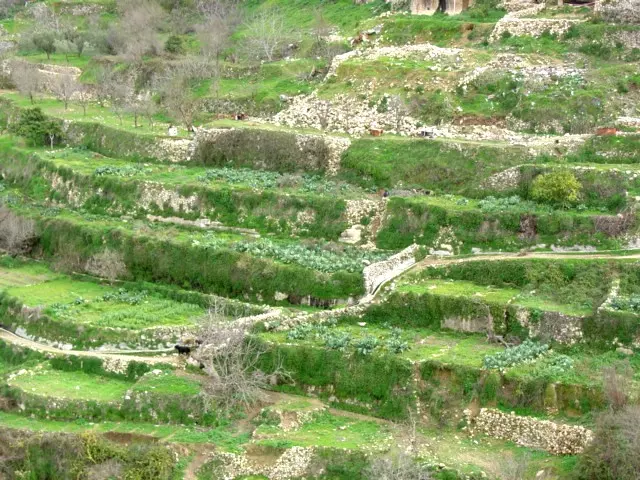Israel’s separation barrier threatens ancient Palestinian farming practice, The Associated Press
? Battir’s 6,000 inhabitants live in limestone-faced houses built into a hillside southwest of Jerusalem. On the lands around the homes, stone retaining walls have transformed scrubby hills into orderly terraces of olive trees and vegetable gardens?.
Terraces are a common Palestinian farming technique in the hilly West Bank terrain. But in Battir, they are unique for their extent ? stretching uninterrupted over nearly 2,000 hectares (800 acres) ? and for the centuries-old network of irrigation canals that direct springwater over the stepped hills.
Residents of Battir, one of the last West Bank farming villages that still uses irrigation systems from Roman times say the village’s ancient way of life is in danger as Israel prepares to lay down its West Bank separation barrier.
This combination prompted the U.N.’s cultural agency, UNESCO, to award the village last year with a $15,000 prize for “Safeguarding and Management of Cultural Landscapes.”
The canal network has been in place for 2,000 years, with residents continually keeping up the system, said Giovanni Fontana-Antonelli, a local UNESCO official. Because the area is largely untouched by construction, it is still possible to see “the form and the shape of the past generations’ work,” he said. “In other places you have terraces, but you also have urban sprawl, roads and settlements.”
“The wall as projected so far will interfere with this ancient irrigation system by cutting part of the irrigation network,” he said of the planned path for Israel’s barrier. The integrity of the terraces “will be totally dismantled.”




Post Your Comment
*It should be NOTED that your email address won't be shared, and all communications between members will be routed via the website's mail server.